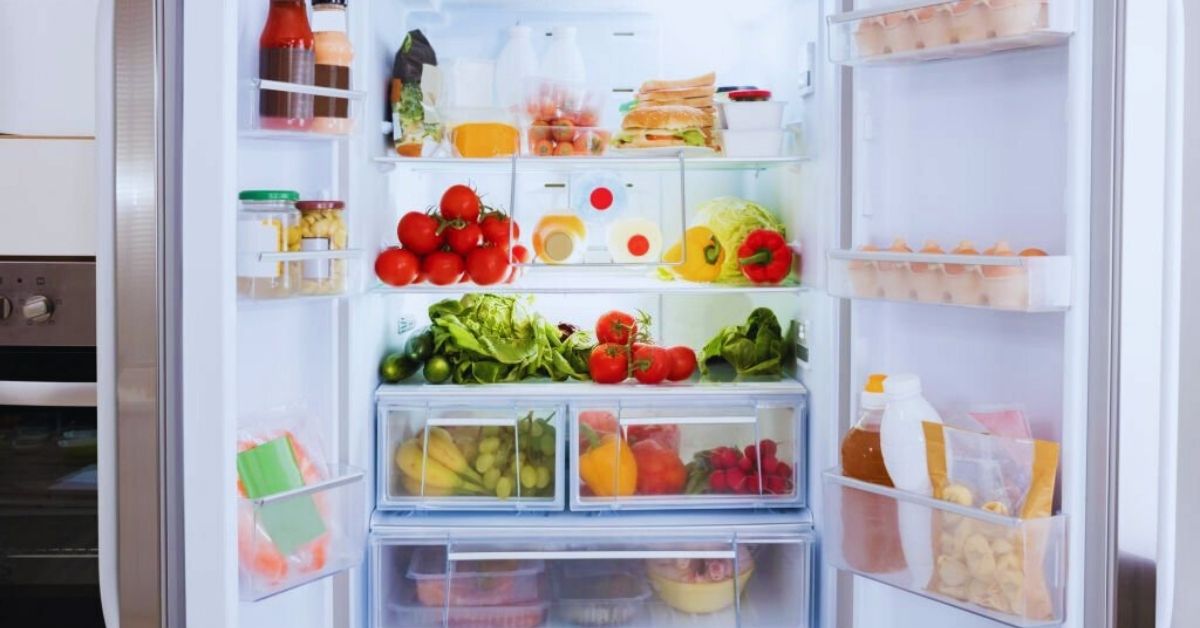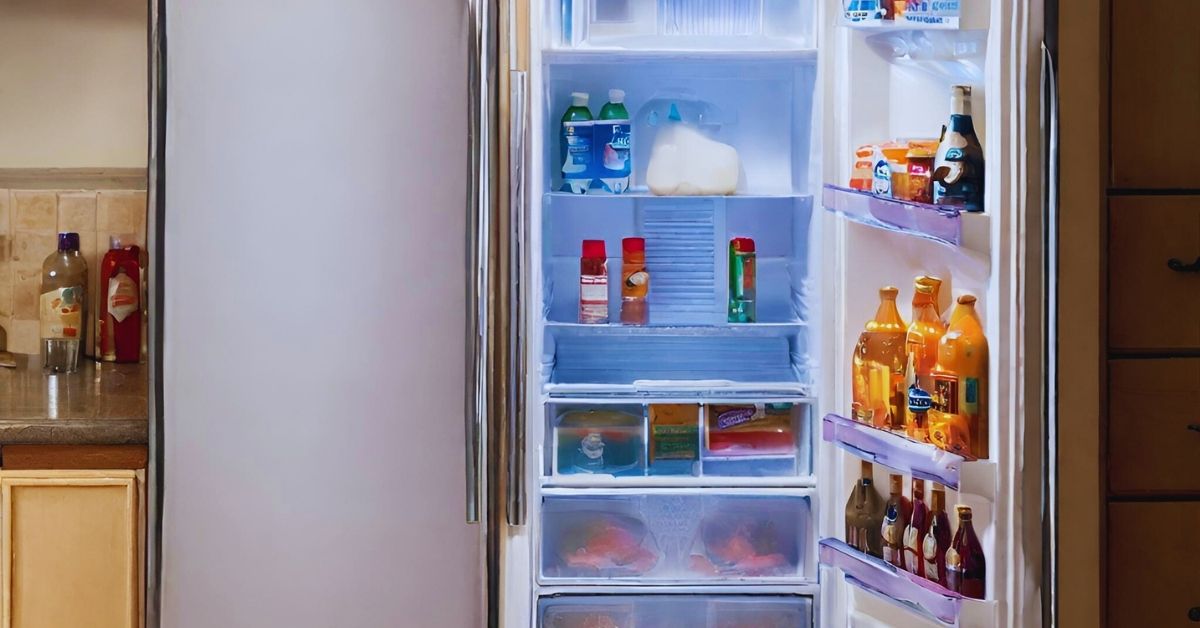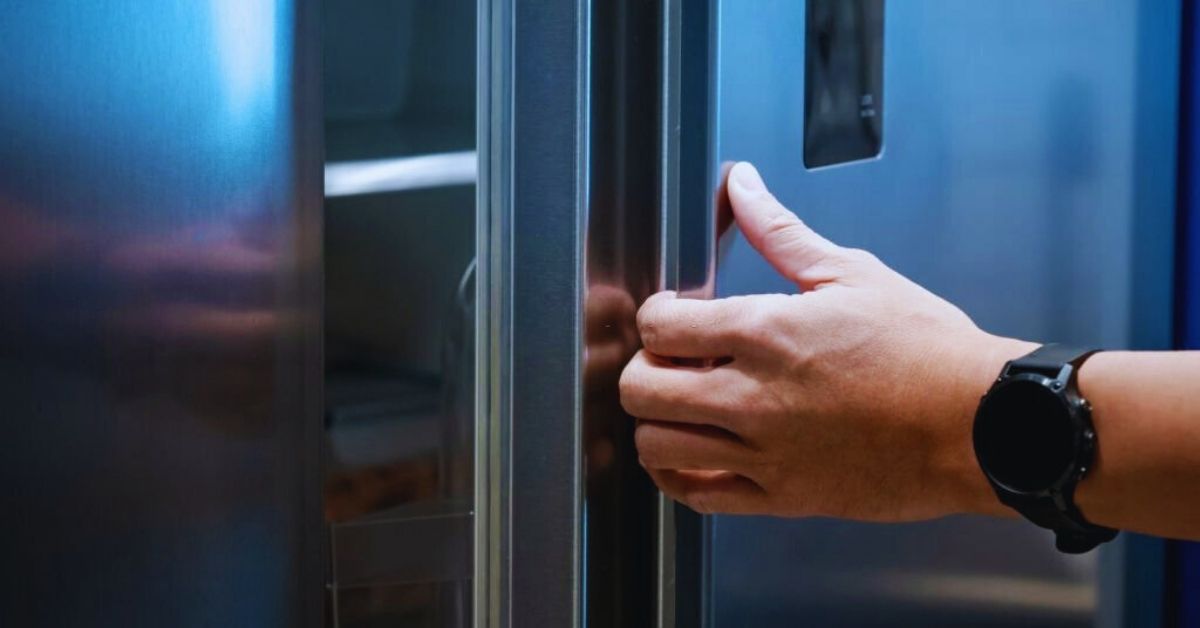Common 5 Samsung Twin Cooling Fridge Freezer Problems
Samsung twin cooling fridge freezers are leading the heaps in satisfying modern refrigeration needs. Their ultra-quality working, variant temperature cooling, anti-bacterial, and fresh environment to the food make the choice reliable for years.
However, the complex machine mechanisms also get to face oppression in the constant smooth working. With the use, the components or major parts of the Samsung twin cooling fridge freezer may get worn out or damaged and can demand technical troubleshoots to fix the issues.
The most common Samsung twin cooling fridge problems include the freezer not cooling, ice buildup in the freezer, and leaking water from drain lines or drip pan. Some noise issues include humming or buzzing from the compressor or fan motor, and rattling sound from the icemaker. The door not closing and the lights not working properly can also be the issues with the Samsung twin cooling fridge freezer.
In this guide, we are dedicated to coming up with solutions to above mentioned problems. We have researched how to troubleshoot and resolve the problems through DIY.
Our prime motive is to save your service money by providing the simplest and detailed solutions to technical problems. Let’s have a look at them.
Samsung Twin Cooling Fridge Freezer Problems
The seven most frequent machine problems with the Samsung twin fridge freezer are explained below. Their causes, troubleshooting steps, and ways to address the problem are also mentioned;
1. Freezer Not Cooling Enough or Not Cooling At All
Samsung twin fridge freezer comes at the forefront in providing variant temperature options. It allows you to convert the freezer into a fridge in just under a few clicks. However, the sensitivity in the mechanism and a few other worn-out components sometimes disturb the freezing cycle of the machine.
When freezing not cooling enough the inaccurate temperature settings might be the reason under the rock. Samsung recommends adjusting the fridge temperature below 40 degrees F and the freezer temperature at 0 degrees to meet the required results.

If temperature settings are not an issue the next part to troubleshoot is the vent. Vents, with a slogan of ‘ let the cool air flow’ gives way to the cold reaching each section of the refrigerator.
It is a must for you to know that fridge sections receive cold air from the freezer section. If the freezer temperature is bad the fridge is also less likely to cool the items properly. In the fridge and freezer, if the food items are placed adjacent to the vents, the cold air will get blocked excluding either or both sections from the cooling cycle.
Therefore locate the vents in your Samsung twin fridge freezer if they are blocked by any food.
Moreover, if the issue is still unresolved we have the third component condenser coils to troubleshoot when the freezer is not cooling enough.
Condenser coils work on the principle of releasing heat from the refrigerator to the surroundings and keeping the items cool inside. When condenser coils are dirty the heat releasing process slows down and hence causes the items to receive less cold than required. Moreover, the refrigerator uses more electricity to throw out the heat by itself.
To troubleshoot the coils locate their position. Depending upon the model or design, condenser coils in the Samsung twin fridge freezer can be located in either of the three locations in the back of the unit, behind a rear panel, or around the upper grille.
Check the coils. If found dirty vacuum the coils and the area around it. Use an appliance brush to clean the stubborn dust. Use the vacuum again to properly clean out the surface.
Worn-out and damaged door seals or gaskets are the final DIY option in the list to troubleshoot and fix. Refrigerator door sealing has strip like structure that is adhered to all around the edges that forbids the hot surrounding air from entering the cold environment.
Check the sealing if it is found damaged, replace it.
2. Ice Buildup in the Freezer
Unnecessary ice buildup in the freezer can be another common problem encountered by Samsung twin cooling fridge freezer owners. If you are searching to deal with the same we have the easiest way for you to address the issue.
The method used to melt the ice buildup in a freezer is commonly known as defrosting. Refrigerators have installed defrosting cycles which eliminates the ice buildup in freezers. When the function is failed the condenser coils start contributing to building unnecessary ice in the freezer.

Usually, two defrosting methods are used to melt the ice from the freezer one is the natural method and the other is automatic. The natural method includes unplugging the refrigerator and taking out the food items from the fridge.
After several minutes the fridge will naturally start heating the ice and melt. In the automatic method select the defrost function from the control panel, the refrigerator automatically will generate the heat inside the freezer to melt the ice buildup.
The other reason why the defrosting function has failed in your Samsung twin cooling fridge freezer is due to the worn defrost heater. It is the component responsible for managing defrosting cycles. Locate the part in your refrigerator, take the multimeter, and test the continuity. If found defective, replace it.
3. Leaking Water
Leaking water from a refrigerator proves most frustrating to deal with. It not only demands wipe-offs every time but also alarms about one or more defective components in your Samsung twin cooling fridge freezer. Let’s study them one by one.
A clogged drain line can be the leading cause of leakage. To address the issue, locate the drain hole in your refrigerator. If the hole is covered with plastic or rubber, unplug it. The next step is to check the obstruction and remove it. Take a thin pipe or a brush, move the tool into the hole, and try cleaning the debris or ice blocking the drain line.
For stubborn clogs and excessive cleaning pour the warm water, mixed with detergent, into the line. To confirm the cleaning notice if the drain line has offered no blockage to the poured water.
An overflowing drip pan could be the next cause of dripping if the drain line is free from obstruction. The drip pan in a refrigerator has no purpose but to collect the water from the defrost drain. Usually, the incoming water is evaporated if you notice the dripping from the rear or beneath the unit it indicates the overflowing drip pan which needs to be disposed off the water and cleaned.
For cleaning, take the pan under warm water and scrub the surface using detergent to clean the debris. To avoid leakage in the future, check the drip pan and clean it once every three months.
Besides releasing the cold air outside the refrigerator, you might be unaware that a damaged door seal also contributes to leaking water from the fridge. Check the complete door dealing of your Samsung twin cooling fridge freezer.
Silicon sealant can help in fixing the sealing detached from any area. If the door seal is found more than damaged and unable to repair then purchase a new one using the model number.

4. Loud Humming or Buzzing
Loud humming or buzzing is found to be the most common noise that Samsung twin refrigerator users search hard to deal with. We have three components in the list that might be defective when you hear this sound.
A defective or worn-out compressor could be the prime reason why the fridge is producing a humming or buzzing noise. To replace the compressor remove the lines connected to the compressor.
Lose the compressor screws and remove the harness on the compressor. This will help take out the defective compressor. Place the new compressor in the position, solder the connection lines, and reverse the process to fix the part.
The next part that might be contributing to producing humming or buzzing is the condenser fan motor. For appliances to perform refrigeration cycles properly condenser motor plays an essential role. It draws the air in the refrigerator through bottom grills which cools down the compressor coils and then throws the air out.
When the compressor motor is bad it overheats the compressor and also shuts it off increasing the temperature of the appliance. To troubleshoot, locate the compressor motor and check for any obstruction hindering the motion of blades. If no blockage is found, the worn-out motor bearings might be stopping the blades from moving freely.
The third component to look for when you hear a humming or buzzing sound is the evaporator fan motor. It is responsible for circulating the cold air in the appliance. When the motor is malfunctioned it not only disturbs the temperature of the refrigerator but also produces noise.
To troubleshoot, locate the evaporator fan motor in your appliance and test the continuity. Replace the motor if found malfunctioning
5. Rattling or Clicking
When you hear a rattling or clicking noise it is suggested to inspect the following components in the Samsung twin cooling refrigerator.
The refrigerator not being leveled is one of the reasons for the rattling noise. The alignment between the refrigerator and freezer door might be disturbed and cause an issue.
If you find the freezer door a bit lower than the refrigerator door inserting the flat screwdriver in the control level of the freezer side and turning it clockwise can help level the refrigerator. likewise, if the freezer door is a bit higher than the refrigerator do the same process on the refrigerator side.
The malfunctioned water inlet valve could be the next causing a rattling sound from the refrigerator. The valve provides a gateway for the water to reach the water dispenser and icemaker.
Normally, at the back of the refrigerator and connected to the water supply. A malfunctioned or clogged water inlet valve can produce a rattling sound when starts operation.
Replace the valve if found damaged otherwise clean clogs using mild detergent, baking soda or vinegar.
Conclusion
No appliance is designed ideally. The components inserted are likely to get worn out, damaged, or clogged with the use and time. The same is the manufacturing of the Samsung twin cooling fridge freezer. You might need to deal with repairing and replacing processes after years of use or maybe at the beginning.
Therefore, we hope to have provided a detailed guide on common Samsung twin cooling fridge freezer problems and their solutions. For the appliance to stay longer it is further advised to care and maintain the components.

